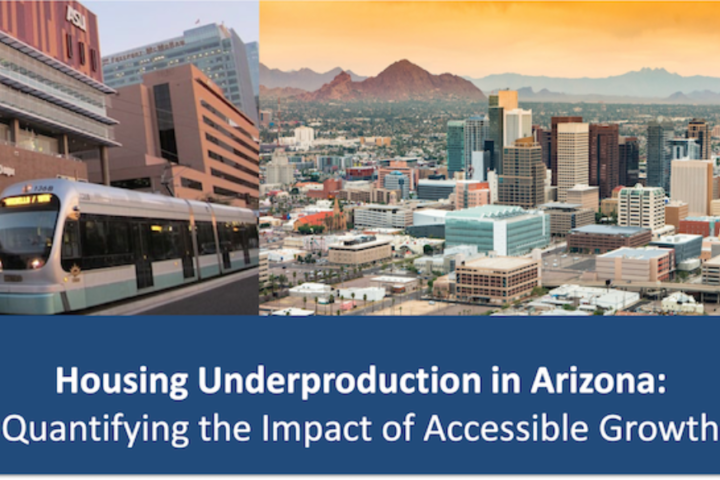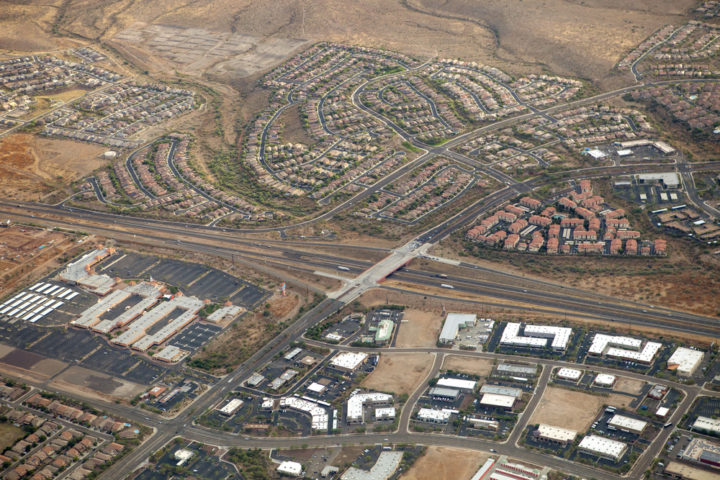The third article in a four‐part series about the Central Arizona Partnership (CAP) mission of “advocating for responsible growth”.
The Impact of Education
Nelson Mandella noted that, “Education is the most powerful weapon which you can use to change the world”. Many from Yavapai County have done just that due in part to a great k‐12 education obtained in their home town. Those whose “world changing” lives started in Prescott and surrounding communities include senators, governors and other elected political figures, lawyers, astronomers, business owners, scientists, human rights activists, physicians, professional athletes and musicians to name just a few.
While the value of education is generally agreed upon, there is much public debate at the local, state and federal level regarding the method or funding for such. Arizonians are not absent from this debate as evidenced by the recent deluge of statewide press on the topic. Deliberation on the education options available and analysis of the level or manner of funding are topics for consideration at another time. An important part of the Central Arizona Partnership (CAP) mission statement is to, “Engage in activities in support of policies, practices, pursuits and initiatives that will help advance the best interest of our communities”. In keeping with this commitment, I would like to explore the correlation between local economic stability and the quality of k‐12 education.
It seems intuitive that quality education is important to the local economy. Well educated, high level employees who are recruited to a locale are very interested in the quality and options of k12education for their children. Companies looking to relocate or expand are interested in the local training for their entry level employees as well as ensuring that quality education will be available for their children. Studies have even demonstrated a positive correlation between the level of education and home values. A strong economy and quality education create an environment for success while the inverse could spell disaster. A struggling economy often results in people moving away from the rural communities to the population centers to seek more stable employment. Declining school enrollment ensues followed by lower funding and tough budget cuts that ultimately put pressure on schools to deliver the same level of quality. Thus the conclusion from the Center for the Future of Arizona that, “Education is the key driver of Arizona’s economy”.
There are definitely “haves” and “have nots” when it comes to school funding. No matter which side of the education argument you find yourself, declining student enrollment is viewed as a negative especially when schools were not operating at capacity. In fact, in my many discussions with school administrators throughout Arizona, declining enrollment is mentioned as a threat to their success as school funding is appropriately tied to student numbers.
Student enrollment numbers for all school districts are provided by the Arizona Department of Education each year and report the following increase/decrease in Yavapai County of: 0.3%, ‐1.0%, 3.2%, ‐0.1% for 2011 through 2014 (total change of ‐2.0%). Enrollment seems to be stabilizing in 2014 and numbers are not yet available for 2015, however, Yavapai County enrollment trends remain slightly negative over the past few years even in an economy that is noticeably in recovery mode. Yavapai County numbers are also unfavorable when compared with Maricopa County’s 23.5% student enrollment increase over the same period. Even some Counties of similar size have experienced somewhat better results during that time frame such as Coconino (+0.8%), Pinal (+8.4%) and Yuma (0.3%). As another comparison the entire state experienced 3.4% enrollment growth between 2010 and 2014.
Even with the difficulty of overall declining enrollment over the past few years local schools are doing well. Prescott High, for example, has produced a Flinn Scholarship recipient each of the past three years with a total of 19 since inception of the program. 2015 graduates from Prescott High also received $5.9 million in scholarships. I’m confident that local schools will continue to provide quality education to our children despite funding concerns and other headwinds. I also believe that stabilized or modestly increasing enrollment will provide improved budgets and a greater chance for successful educational outcomes.
If we conclude that stable to positive student enrollment trends help improve school quality, and with the reasonable conclusion that growth in the economy brings additional k‐12 students to Yavapai County schools. It’s reasonable to conclude that well planned and managed economic growth is therefore a key ingredient to arming our children with the “weapon” (or “tool”) to change the world. Further, education’s benefits to the economy and the corresponding value of economic growth to education should weigh heavily on the minds of voters considering a decision on the upcoming school bond/override vote.
Central Arizona Partnership (CAP) is a group of civic, business, and education leaders from Yavapai County who advocate responsible growth that balances economic and ecological sustainability, judicious management of natural resources, and truthful examination of and debate on growth issues in our region. Look for Central Arizona Partnership’s next article that will explore the relevant issues and possible management strategies associated with Water Resources.
Travis Merrell
Central Arizona Partnership




